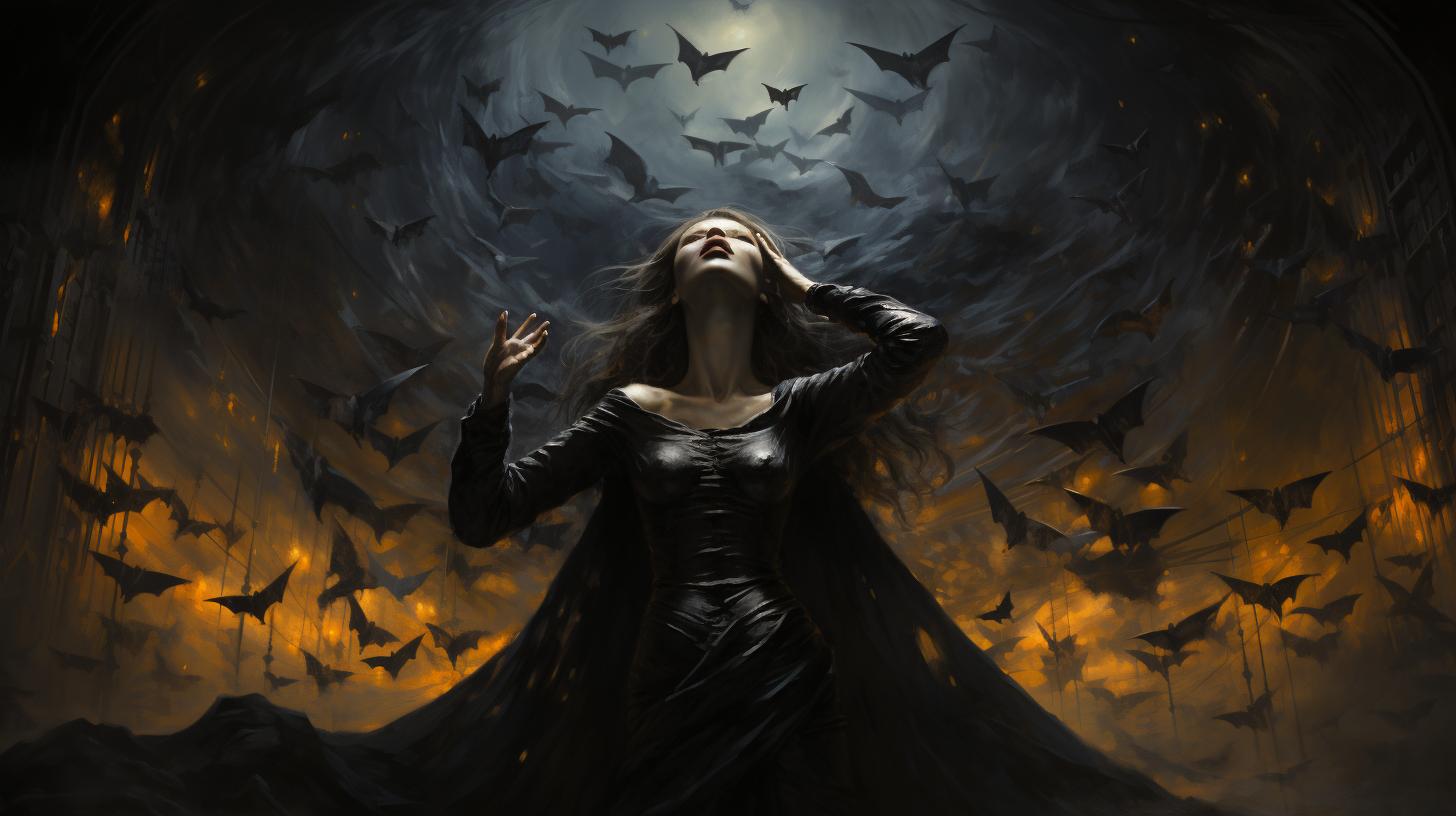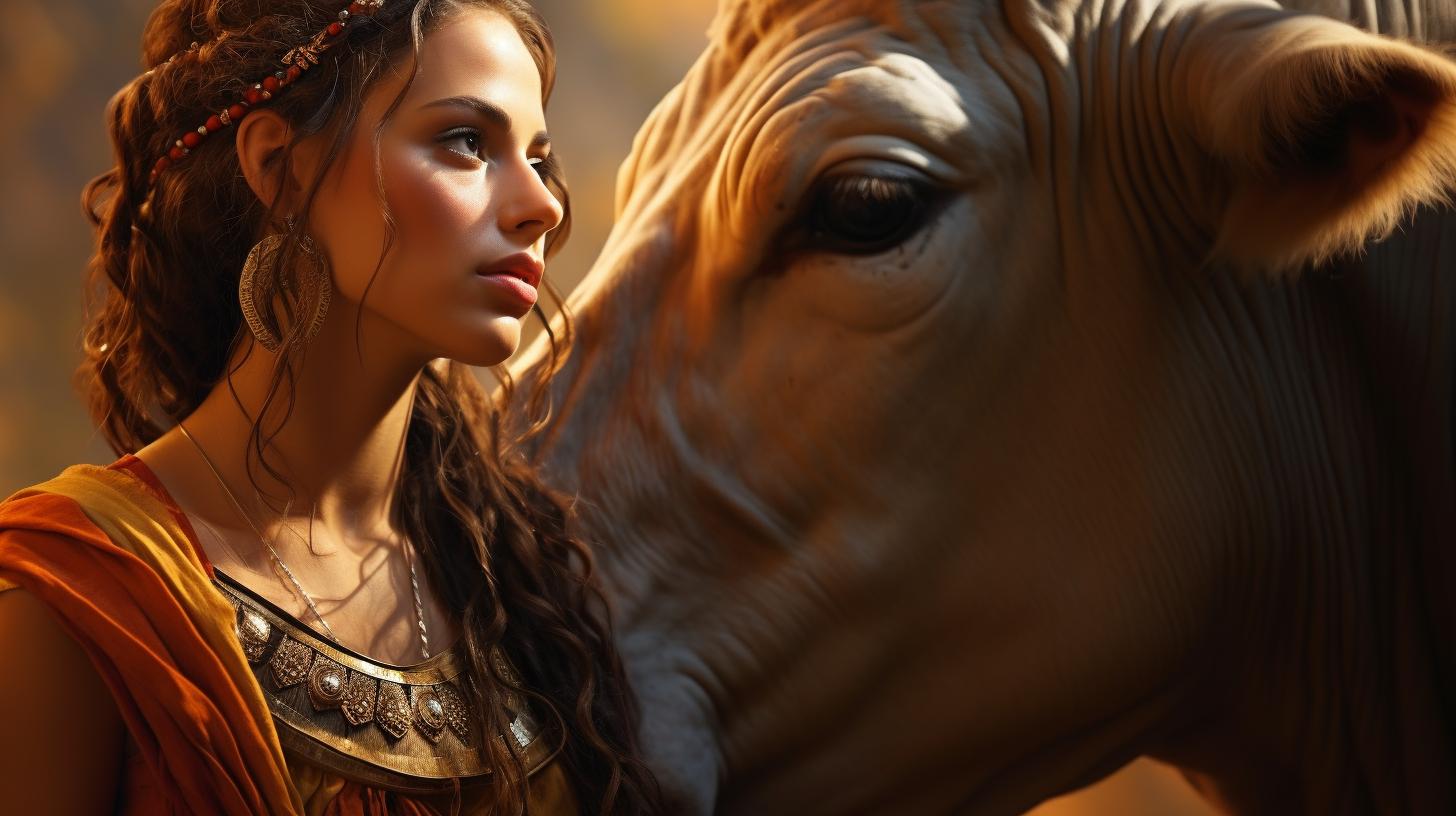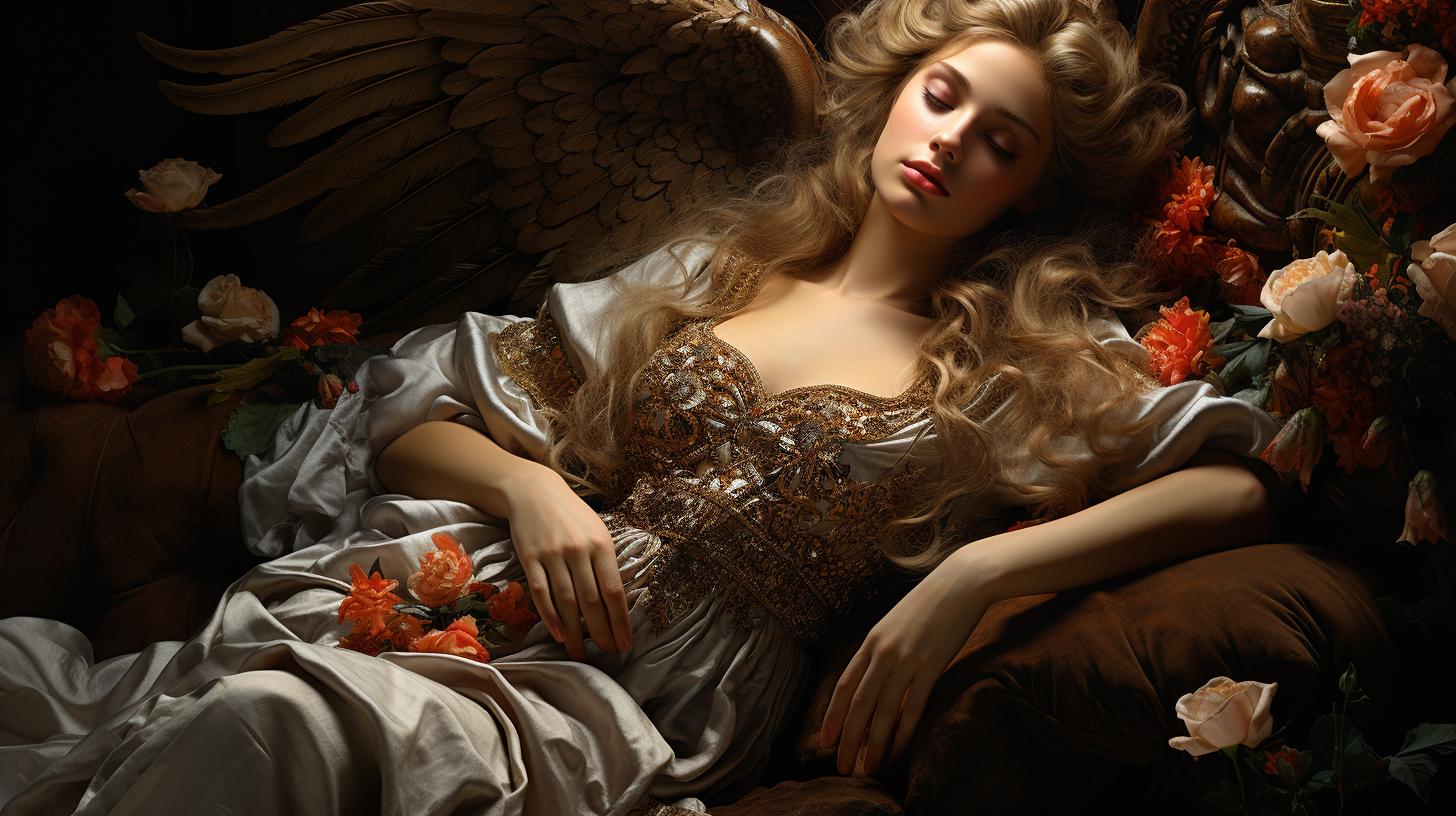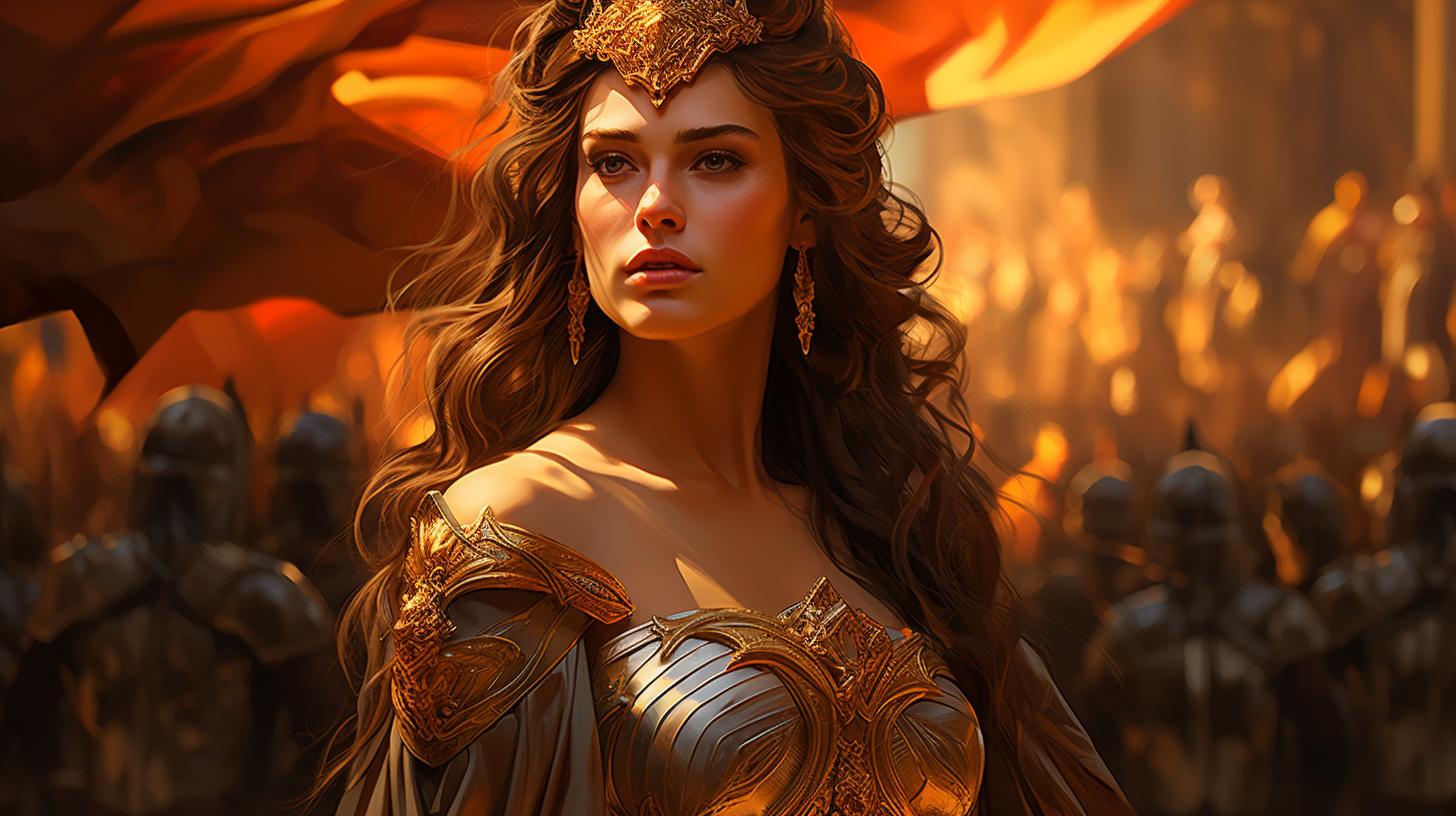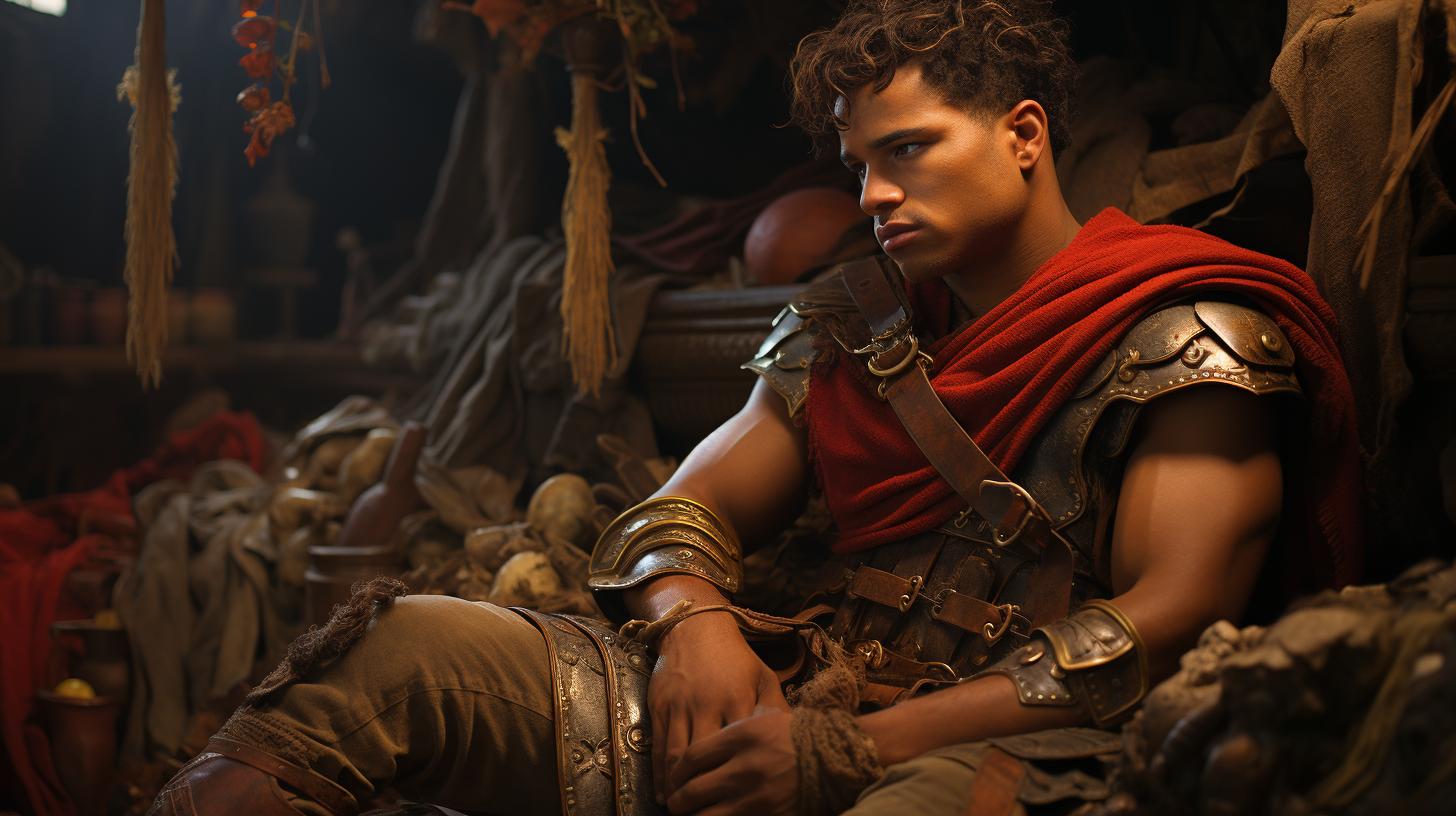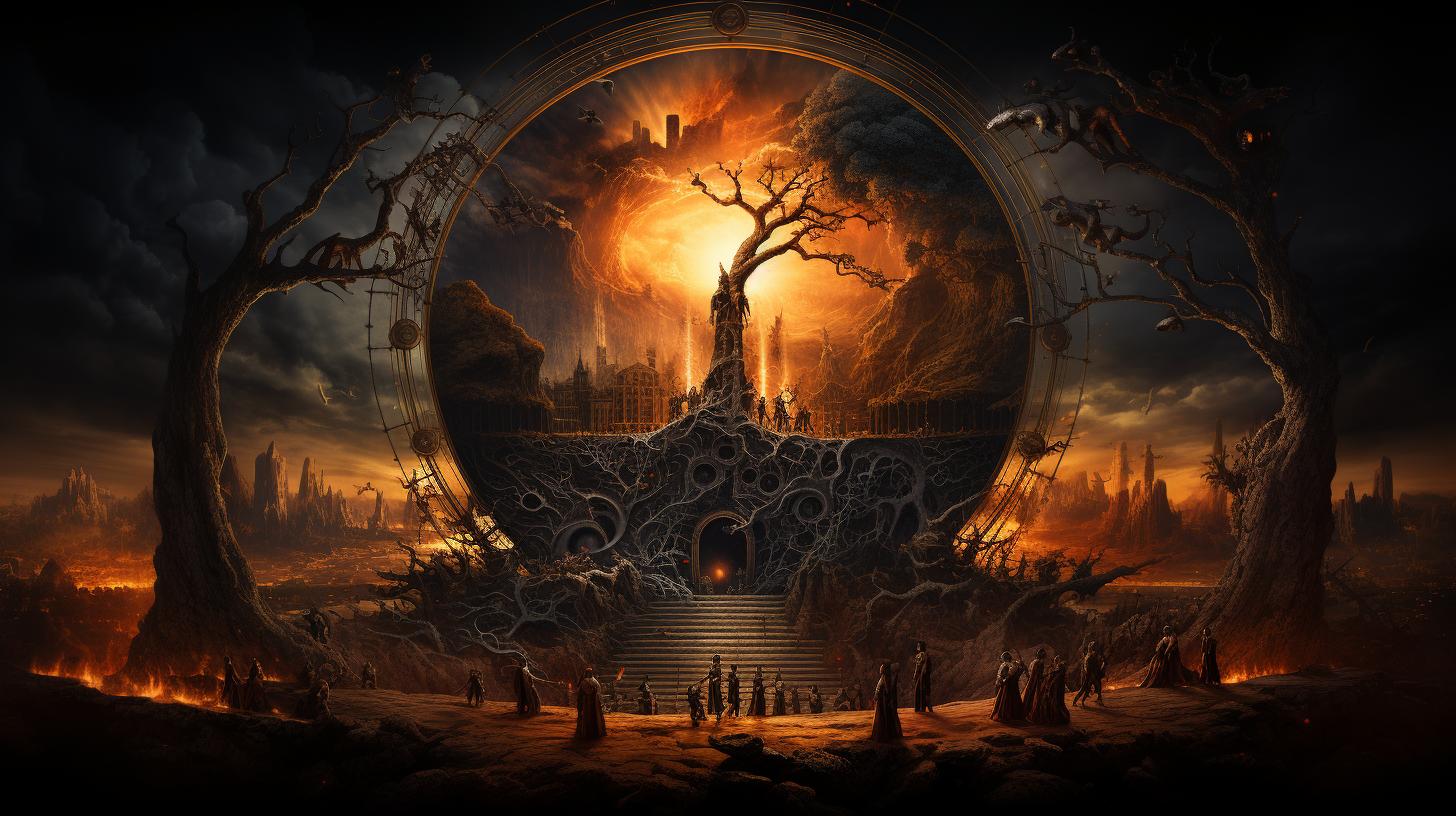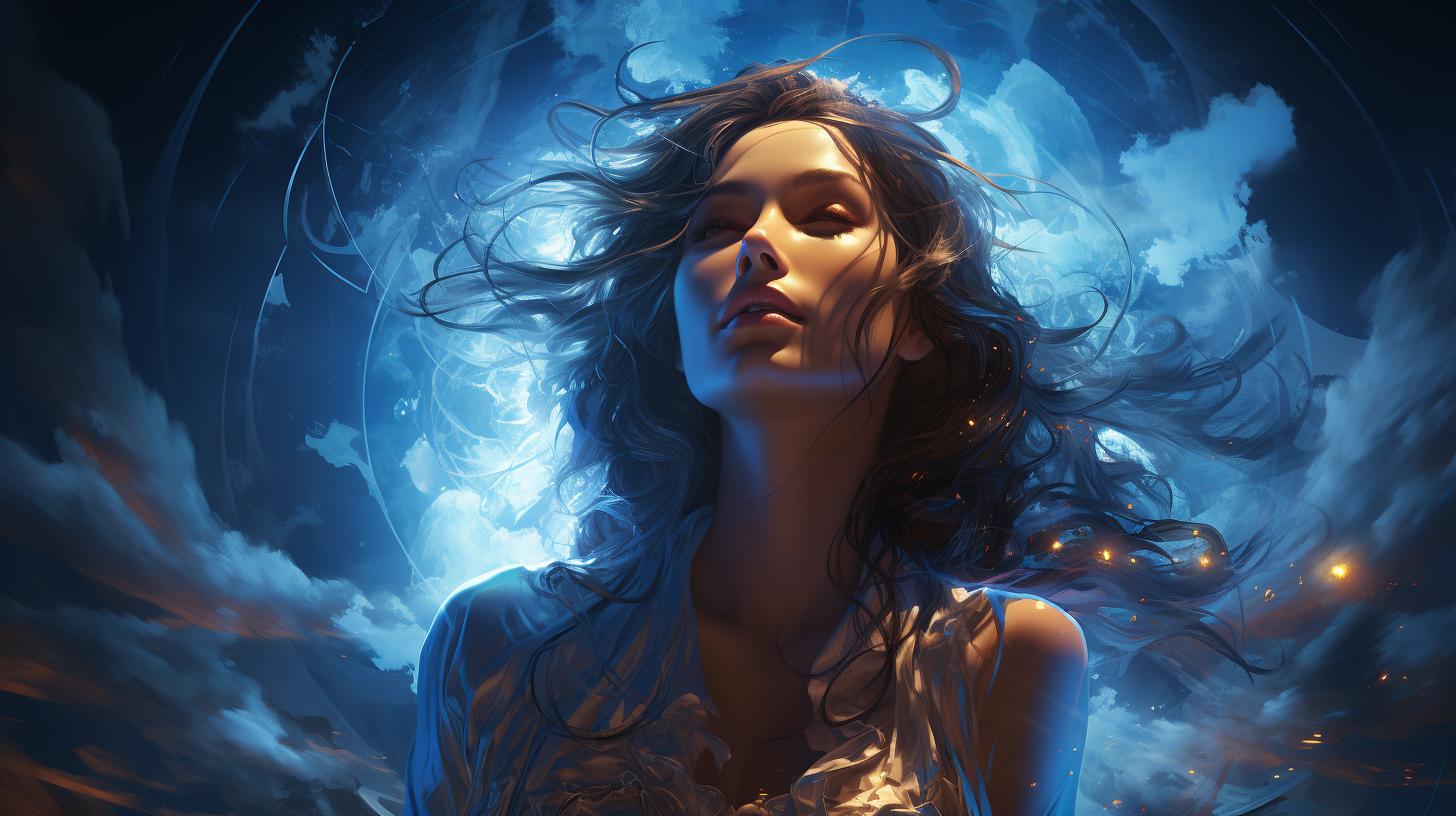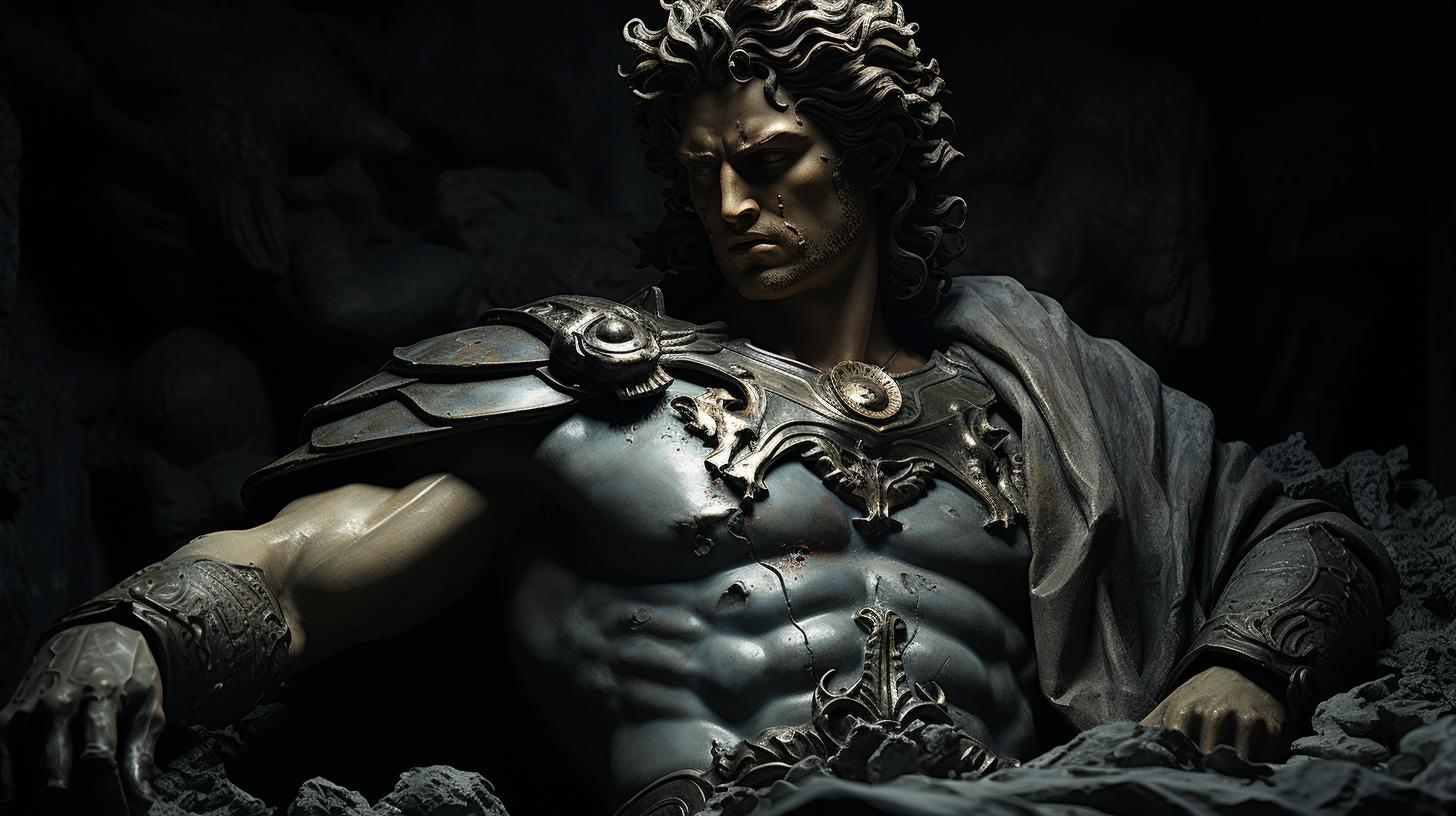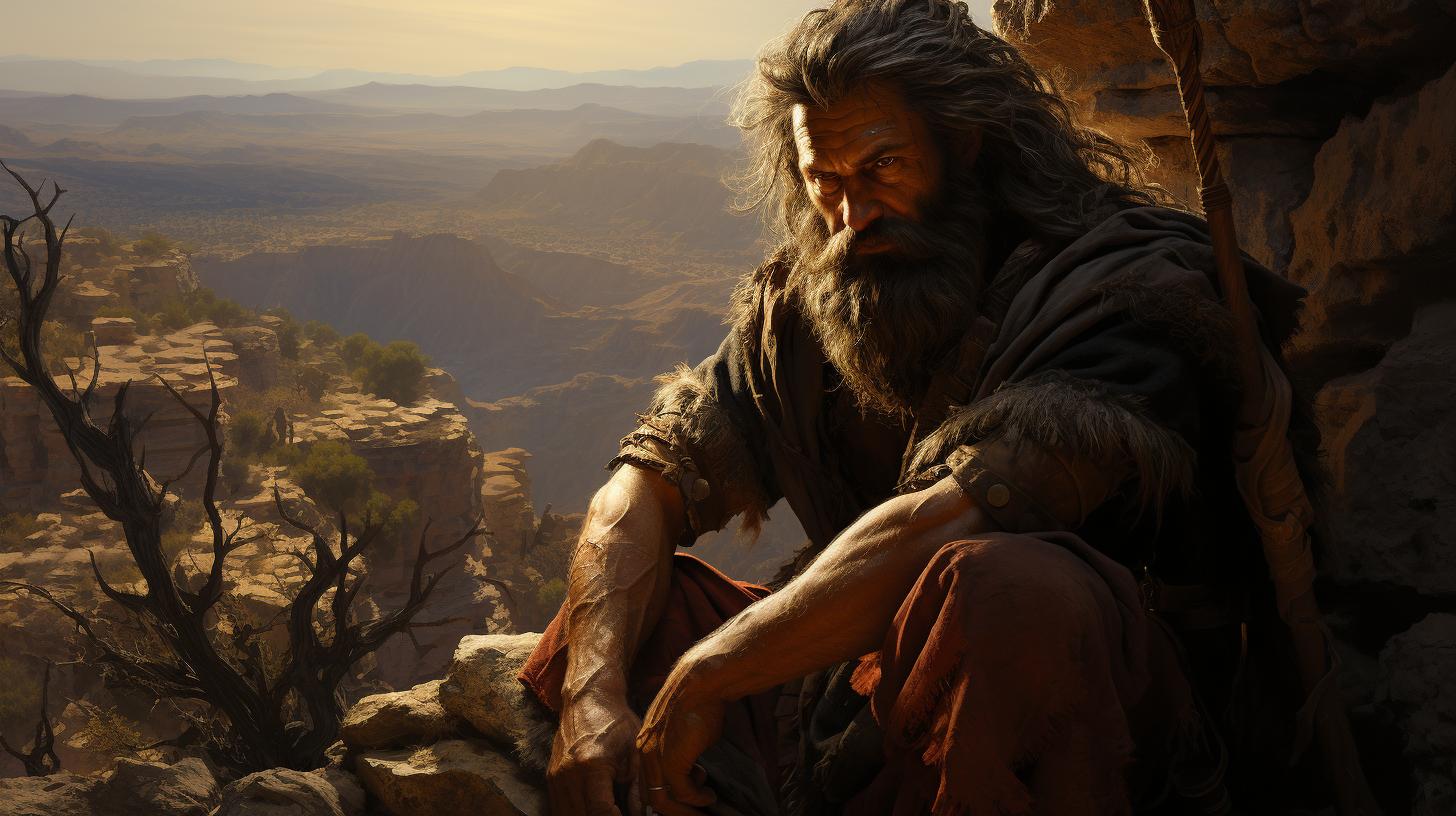Exploring the Mysteries of Oneiroi in Greek Mythology
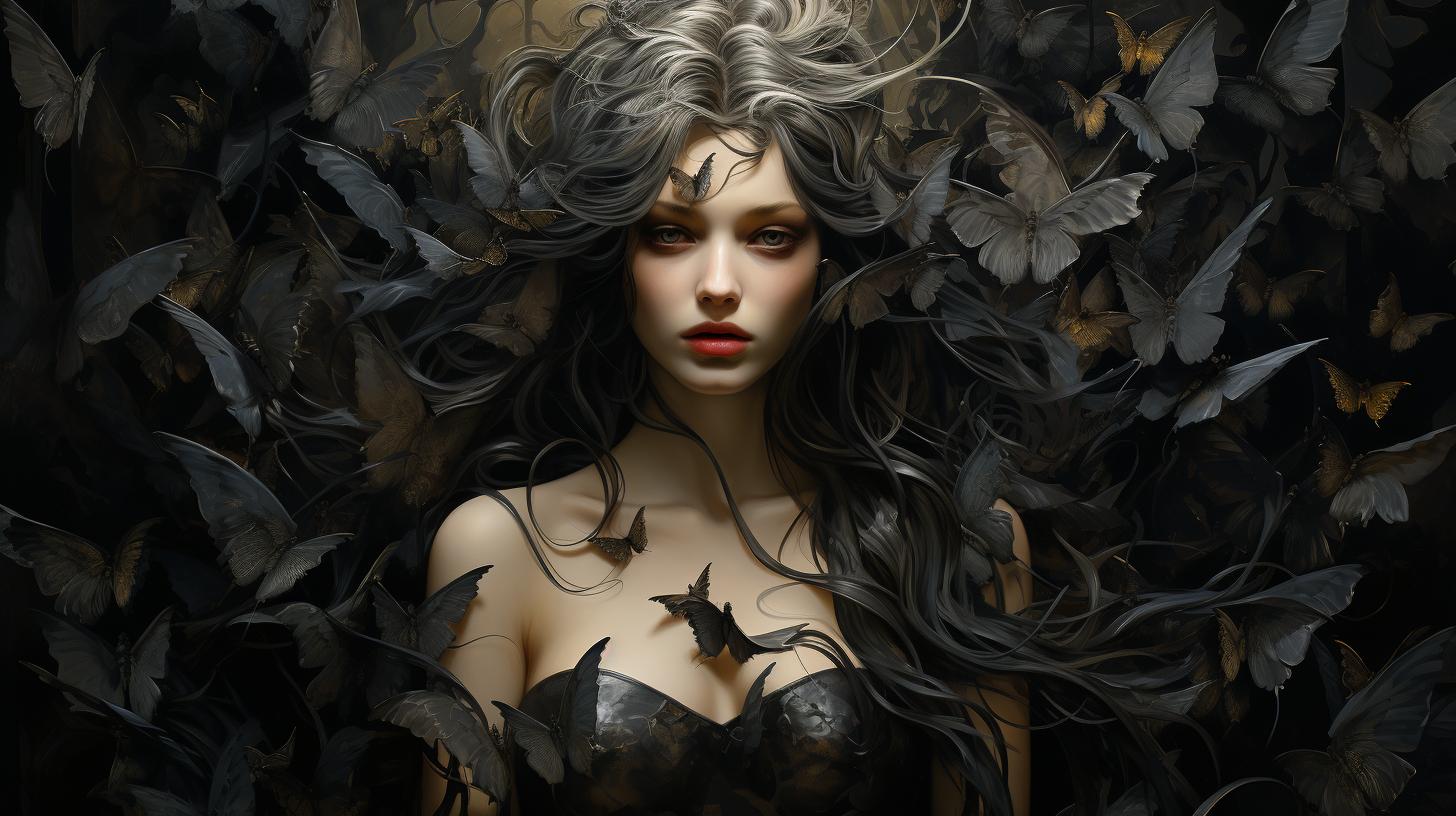
Greek mythology is rich with stories of dreams and their connection to the divine. Oneiroi, the gods of dreams in Greek mythology, played a significant role in the interpretation and communication of these nocturnal visions.
Morpheus, Phobetor, and Phantasos were among the notable Oneiroi, each with their distinct domain in the realm of dreams. This article explores the symbolism, influence, and ancient significance of these mythical deities, shedding light on their enduring impact on contemporary culture and our understanding of the subconscious mind.
The Significance of Dreams in Greek Mythology
In Greek mythology, dreams played a crucial role in the communication between mortals and gods. They were seen as messages from the divine, capable of conveying prophetic or symbolic meanings.
Dreams could be categorized into two types: insignificant dreams, reflecting everyday fears and hopes, and significant dreams, which were visions of the future or visitations from gods and spirits.
The Role of Dreams in Communication from the Gods
Dreams were considered a powerful medium through which the gods could communicate with mortals.
They were seen as channels for divine revelation and guidance. In these dreams, gods often appeared in human form, delivering important messages and prophecies. Kings and heroes were particularly favored recipients of these divine dreams, receiving guidance and warnings to shape their actions and destinies.
Categorizing Dreams: Insignificant vs. Significant
Greek mythology acknowledged that not all dreams held deep significance. Insignificant dreams were believed to reflect the everyday concerns, fears, and desires of individuals. They often mirrored the mundane aspects of mortal life, offering little in terms of divine insight.
On the other hand, significant dreams were seen as direct interventions from the gods, providing glimpses into the future or revealing hidden truths.
- Insignificant dreams: Reflections of daily hopes and fears.
- Significant dreams: Visions of the future and visitations from gods and spirits.
Understanding the categorization of dreams was essential in distinguishing between mere fantasies and profound messages from the divine realm.
The Oneiroi: Greek Gods of Dreams
Immerse yourself in the captivating world of the Oneiroi, the Greek gods of dreams. These celestial beings hold the key to unlocking the mysteries of our nocturnal visions and offer insights into the realm of the divine and subconscious.
Let us explore the three prominent figures within this pantheon of dream deities: Morpheus, Phobetor, and Phantasos.
Morpheus: The Messenger of Dreams
As the embodiment of dreams, Morpheus takes on a significant role in Greek mythology. He serves as the messenger of dreams, delivering divine messages and prophecies to mortals during their slumber.
Let us delve into Morpheus’ fascinating origins and parentage.
Morpheus’ Origins and Parentage
Morpheus is believed to be the offspring of Hypnos, the god of sleep, making him a powerful descendant within the Oneiroi pantheon. Born from the deepest realms of slumber, Morpheus possesses a unique ability to shape-shift in dreams, allowing him to take various forms and interact with mortals in the ethereal realm.
Morpheus’ Ability to Shape-shift in Dreams
With his wings, Morpheus gracefully traverses the boundaries between the mortal world and the realm of dreams. He appears to mortals, especially kings and heroes, in human form to deliver profound messages and prophetic insights from the gods.
Morpheus’ presence in dreams is both enigmatic and awe-inspiring, leaving a lasting imprint on those who experience his ethereal visits.
Phobetor: The God of Nightmares
While Morpheus represents the realm of dreams, his counterpart Phobetor reigns over the domain of nightmares. This god of fear-filled dreams specializes in manifesting himself as grotesque creatures and menacing monsters within the dream world.
Phobetor’s Appearance in Nightmares
Phobetor’s ability to appear as terrifying creatures within nightmares creates a sense of dread and trepidation among those who experience his haunting presence. Through Phobetor, the darker recesses of the human psyche are explored, unveiling hidden fears and anxieties that reside within the subconscious.
Phantasos: The Bringer of Surreal Dreams
In contrast to the dark reign of Phobetor, Phantasos excels in bringing forth dreams of a surreal and otherworldly nature. This deity has the remarkable ability to transform into inanimate objects, such as stones or wood, as a means of communicating his mysterious messages.
Phantasos’ Manifestation as Inanimate Objects
When Phantasos appears in dreams, he presents himself through peculiar and puzzling symbols. By assuming the form of inanimate objects, Phantasos challenges mortals to decode the hidden meanings behind these dreamlike visions, unraveling enigmas and invoking introspection.
Delve into the mesmerizing realm of the Oneiroi, where dreams intertwine with the divine, nightmares loom in the shadows, and the surreal beckons the curious mind. Unveil the secrets these Greek gods of dreams hold and shed light on the intricate tapestry of our subconscious.
Other Deities and Figures Associated with Dreams in Greek Mythology
Greek mythology is a rich tapestry of gods and goddesses, each with their own realm of influence. In addition to the Oneiroi, there are several other deities and figures associated with dreams in Greek mythology.
Hypnos: The God of Sleep and Father of the Oneiroi
Hypnos, the god of sleep, plays a significant role in the realm of dreams. As the father of the Oneiroi, he is responsible for granting mortals the gift of sleep and, consequently, access to the dream realm.
Hypnos often appears alongside his twin brother Thanatos, the god of death, representing the transition from wakefulness to slumber.
Nyx: The Goddess of Night and Mother of Morpheus
Nyx, the goddess of night, is an essential figure in the pantheon of Greek mythology.
As the mother of Morpheus, one of the prominent Oneiroi, she holds a powerful connection to the world of dreams. Nyx is often depicted as a powerful and enigmatic deity, shrouded in darkness and mystery.
Zeus, Hades, Eros, Hermes, and Aphrodite: Other Greek Gods Influencing Dreams
While the Oneiroi may be the primary gods associated with dreams, other deities also influence and interact with this ethereal realm. Zeus, the king of the gods, is known to use dreams to communicate his messages and desires.
Hades, the ruler of the underworld, employs dreams to guide and manipulate mortals. Eros, the god of love, uses dreams as a means of influencing the hearts and desires of individuals.
Hermes, the messenger of the gods, acts as a conduit for delivering divine messages through dreams. Aphrodite, the goddess of love and beauty, often makes appearances in dreams, inspiring feelings of passion and desire.
Titans and Mythological Figures Connected to Dream Realm
In addition to the gods and goddesses, several titans and mythological figures are associated with the dream realm. The titaness Phoebe, known for her prophetic abilities, is often connected to dreams and divination.
Moros, the god of doom and personification of impending fate, is closely tied to the themes of dreams and premonitions. Icelus, another figure associated with dreams, is known for crafting lifelike illusions within the nocturnal visions.
With a diverse pantheon of deities and mythological figures connected to dreams, Greek mythology offers a deep well of inspiration and symbolism when exploring the realms of the subconscious mind and the significance of dreams.
The Influence of Greek Mythology’s Oneiroi in Contemporary Culture
The mythical gods of dreams, the Oneiroi, continue to leave their mark on contemporary culture, permeating various forms of artistic expression. From literature to films and other media, the influence of Greek mythology’s Oneiroi can be seen in diverse creative works.
Examples in Literature, Films, and Media
Numerous works of literature have drawn inspiration from Greek mythology’s Oneiroi, incorporating their symbolism and themes into captivating narratives. Authors such as Neil Gaiman, Rick Riordan, and Madeline Miller have skillfully incorporated the enigmatic world of dreams and the Oneiroi in their books, captivating readers with imaginative storytelling.
Additionally, films and television series like “Inception” and “American Gods” have explored the intriguing realm of dreams, incorporating elements of Greek mythology’s Oneiroi to weave captivating tales on the big screen.
Morpheus in ‘The Matrix’: A Modern Interpretation
One particularly iconic portrayal of the Oneiroi in contemporary culture is the character Morpheus in the groundbreaking film series ‘The Matrix.’ Morpheus, portrayed by Laurence Fishburne, serves as a guide, introducing the protagonist to a world where reality and dreams intertwine.
Drawing upon Greek mythology, Morpheus’ name and role pay homage to the god of dreams, showcasing the enduring influence and relevance of the Oneiroi in modern storytelling.
Continuing Influence of Greek Mythology’s Oneiroi on Creative Works
Beyond specific examples, the influence of Greek mythology’s Oneiroi extends to the broader creative landscape. Their relevance and allure in exploring the realm of dreams, prophecies, and the subconscious mind continue to inspire artists, writers, and filmmakers around the world.
Whether it’s a subtle nod to the gods of dreams or a full-fledged exploration of their realms, Greek mythology’s Oneiroi offer endless possibilities for creative and thought-provoking storytelling that captivates audiences and allows for deeper explorations of the human psyche.
Exploring the Symbolism and Themes in Oneiroi and Dreams
In this section, we delve into the profound symbolism and themes present in the realm of Oneiroi and their dreams. From symbolic meanings and interpretations to themes of prophecy, fate, and divination, as well as the moral lessons and philosophical reflections inspired by these dreams, we unravel the depths of their significance.
Symbolic Meanings and Interpretations in Oneiroi Dreams
The dreams brought forth by the Oneiroi are rich in symbolism, offering profound insights into the subconscious realm. These dreams often contain hidden messages, metaphorical representations, and archetypal symbols that convey deeper meanings.
Exploring the symbolism within Oneiroi dreams allows us to gain a greater understanding of ourselves, our desires, fears, and the intricate workings of our inner worlds.
Themes of Prophecy, Fate, and Divination in Oneiroi Mythology
Oneiroi dreams frequently involve themes of prophecy, fate, and divination.
It was believed that these dreams could provide glimpses into the future, offering guidance and insight into forthcoming events. The Oneiroi acted as conduits between the mortal realm and the realm of the divine, offering mortals the ability to tap into hidden knowledge and guidance from the gods.
Through the exploration of these themes, we come to appreciate the profound connection between dreams, destiny, and the unraveling of one’s path.
Moral Lessons and Philosophical Reflections Inspired by Oneiroi Dreams
Oneiroi dreams have long been a source of moral lessons and philosophical contemplation.
They reflect the complexities of human nature, the consequences of actions, and the fundamental questions of existence. These dreams often challenge our perceptions, ignite introspection, and serve as catalysts for personal growth and self-reflection.
The moral lessons and philosophical reflections inspired by Oneiroi dreams provoke deep contemplation of the human experience and shed light on the intricacies of life’s choices and consequences.
By delving into the symbolism and themes present in Oneiroi dreams, we unravel the profound insights and timeless wisdom they offer.
These dreams transcend the boundaries of time, providing a window into the human psyche and the divine mysteries that continue to captivate our collective imagination.
Unveiling the Secrets of Oneiroi in Ancient Texts and Artifacts
The ancient texts and artifacts provide invaluable insights into the enigmatic realm of the Oneiroi in Greek mythology.
Through the analysis of ancient Greek myths and epics, we can begin to unravel the mysteries surrounding these gods of dreams and their significance in the ancient world.
Analysis of Ancient Greek Myths and Epics
A deep dive into ancient Greek myths and epics, such as Homer’s “Odyssey” and Hesiod’s “Theogony,” reveals captivating tales featuring the Oneiroi.
These narratives shed light on the roles, characteristics, and interactions of Morpheus, Phobetor, and Phantasos, allowing us to comprehend their profound influence on mortal lives.
Depictions of Oneiroi in Ancient Greek Art
Ancient Greek art provides visual representations of the Oneiroi, offering a glimpse into their appearance and symbolism.
Intricate pottery, sculptures, and frescoes showcase Morpheus, Phobetor, and Phantasos in various forms, capturing their distinctive attributes and mystique.
Comparisons and Contrasts in Different Ancient Texts’ Interpretations of Oneiroi
By examining different ancient texts, including those by Aeschylus, Ovid, and Nonnus, we can explore the varying interpretations of the Oneiroi.
These texts present diverse perspectives on the nature of dreams, their relationship with the divine, and the role of the Oneiroi in shaping mortal experiences.
- Comparison of the descriptions, symbolism, and narratives surrounding the Oneiroi in different ancient texts
- Contrasting viewpoints on the origins, parentage, and abilities of Morpheus, Phobetor, and Phantasos
- Exploration of the evolution of Oneiroi myths across different time periods and regions in ancient Greece
Through a thorough examination of these ancient texts and artifacts, we can delve deeper into the fascinating realm of the Oneiroi and gain a greater understanding of their significance in Greek mythology and the human psyche.
The Mysterious Gate of Dreams: Exploring its Significance and Stories
Deep within the realm of Oneiroi, there lies a mystical gateway that unveils the secrets of dreams. This section delves into the significance and enchanting tales surrounding the Gate of Dreams in Greek mythology.
Mythical Stories and Legends about the Gate of Dreams
Stories and legends surrounding the Gate of Dreams weave a captivating tapestry of divine and mortal interactions. It is said that the gate serves as the passage between the mortal world and the realm of dreams, allowing the Oneiroi to grant visions and messages to unsuspecting dreamers.
One such myth recounts the tale of a courageous hero who, guided by the whispers of the Oneiroi, embarks on a perilous journey to reach the Gate of Dreams. Along the way, the hero encounters fantastical creatures and faces daunting trials, all while unraveling the mysteries of the gate and its profound influence on the destiny of mortals.
The Role of the Gate of Dreams in Greek Mythology
In Greek mythology, the Gate of Dreams holds immense metaphysical significance. It is believed to be the threshold through which the divine energies of the Oneiroi flow, shaping the dreams and prophecies that traverse the subconscious realm of mortals.
The gate is said to be guarded by Hypnos, the god of sleep and father of the Oneiroi. Only those who possess unwavering will and pure intentions can successfully navigate through its ethereal archway and unlock the profound wisdom and foresight held within the dreams granted by the Oneiroi.
Portrayals of the Gate of Dreams in Ancient Art and Literature
Ancient art and literature offer glimpses into the mysterious Gate of Dreams and its symbolic representation. In intricate murals and sculptures, artists captured the ethereal beauty of the gate, often depicting celestial beings guiding mortals towards its transcendental threshold.
Throughout ancient literary works, poets and storytellers vividly describe the enchantment of the gate. Its golden arches adorned with intricate celestial motifs, shimmering with the essence of dreams and possibilities, become a captivating focal point in ancient tales of heroism and destiny.
The portrayals of the Gate of Dreams in ancient art and literature not only showcase the artistic prowess of ancient civilizations but also highlight the profound connection between dreams, the divine, and the human psyche.
Suddenly, reality seems distant as one stands before the Gate of Dreams, ready to embark on a journey of untold wonders and revelations. As we explore this enigmatic gateway, we begin to comprehend the profound significance it holds within the tapestry of Greek mythology and the human experience.
The Realm of Oneiroi: A Glimpse into the Divine and Subconscious
The realm of Oneiroi in Greek mythology provides a captivating insight into the mysterious connections between the divine and the subconscious. Exploring the symbolism and depth of Oneiroi dreams reveals a profound understanding of both the psychological and symbolic aspects.
Connections between Oneiroi and Other Divine Realms
The Oneiroi’s realm is intricately linked to other divine realms, serving as a gateway through which gods and mortals intersect. Through dreams, mortals have the privilege of glimpsing into the divine realm and receiving messages and insights from the gods.
From Zeus, the king of gods, to Hades, the ruler of the underworld, various Greek deities influence dreams and communicate through the Oneiroi. Eros, the god of love, Aphrodite, the goddess of beauty, and Hermes, the messenger of the gods, are among the influential figures whose presence is felt in the realm of dreams.
Exploring the Psychological and Symbolic Depths of Oneiroi Dreams
Oneiroi dreams offer unique opportunities for delving into the psychological and symbolic depths of the human mind. These dreams often carry profound meanings and act as reflections of one’s inner desires, fears, and unresolved issues.
By analyzing the symbolic elements present in Oneiroi dreams, insights can be gained into the dreamer’s psyche and their emotional state. The surreal and fantastical nature of these dreams invites interpretation and contemplation, sparking introspection and self-discovery.
The Oneiroi’s Relevance in Understanding Human Consciousness and Experience
The study of Oneiroi and their influence on dreams provides valuable perspectives on human consciousness and experience. Dreams, as manifestations of the mind during sleep, offer glimpses into the intricate workings of the human psyche and the universal human experience of emotions, desires, and anxieties.
Understanding the Oneiroi and their significance allows us to explore the depths of our collective consciousness, providing insights into our shared human nature and the universal themes that shape our lives.
Oneiroi and Mortals: The Interaction and Influence of Dreams
Dreams have long fascinated mortals, and their interaction with the Oneiroi gods holds great significance in Greek mythology. This section explores the dynamic relationship between mortals and the gods of dreams, shedding light on their imparting of divine messages, the impact of nightmares and surreal dreams on mortal lives, and the ancient Greek beliefs and practices related to dream interpretation.
Morpheus’ Visits to Mortals and the Imparting of Divine Messages
Morpheus, the messenger of dreams, wields the power to appear in the dreams of mortals and deliver important messages from the gods. With the ability to shape-shift, Morpheus assumes human form to communicate prophecies and guidance, often to kings and heroes.
These encounters blur the boundaries between the divine and mortal realms, leaving a lasting imprint on the lives and destinies of those visited.
Impact of Nightmares and Surreal Dreams on Mortals’ Lives
The influence of Phobetor, the god of nightmares, and Phantasos, the bringer of surreal dreams, on mortals’ lives is undeniable.
Nightmares filled with terrifying creatures or situations often leave lasting emotional and psychological effects, haunting the waking hours of those who experience them. Similarly, surreal dreams provoke deep introspection and contemplation, challenging mortals to explore the boundaries of their imagination and subconscious.
Ancient Greek Beliefs and Practices regarding Dream Interpretation
The ancient Greeks held strong beliefs and developed various practices surrounding dream interpretation. Dream divination played a crucial role in understanding the divine will and foreseeing the future. Oneirocritica, the art of interpreting dreams, became an established discipline, guiding individuals in unraveling the hidden messages within their dreams.
Techniques such as incubation and seeking the counsel of skilled interpreters were employed to gain deeper insights into the meanings embedded in dreams.
- Oneirocritica: The art of interpreting dreams guided by skilled practitioners.
- Incubation: Engaging in rituals or sleeping in sacred spaces to induce prophetic dreams.
- Interpretation of symbols and recurring motifs: Uncovering hidden meanings and prophecies within dreams.
- Oracles and seers: Consulting wise individuals believed to possess the ability to decipher divine messages conveyed through dreams.
The ancient Greeks recognized the profound impact of dreams on mortal existence, treating them as valuable metaphysical experiences deserving careful analysis and interpretation.
.

